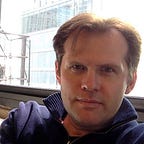Why Your Pen is Mightier than the Keyboard: The Resurgence of Handwritten Notes
Introduction
I have long appreciated the simplicity and openness of taking notes with a pen and paper. Recently, I have embarked on a journey to refine my handwriting to improve its balance of elegance and practicality. But my fascination with handwriting goes beyond notes. I recently re-discovered a treasure trove of old letters, a stark contrast to the digital void left by years of emails and social media. These physical mementos, brimming with memories and emotions, outlived their digital counterparts and made me question the legacy we are leaving behind. Although we’re in a digital age, I firmly believe in the slow, thoughtful process of handwriting, be it in note-taking or letter-writing. I am now extending an invitation to my friends and readers to join me in reviving this meaningful practice. Despite the convenience of digital communication, nothing quite matches the creativity and thoughtfulness handwritten notes and letters foster.
The Boardroom
Imagine yourself in a bustling corporate boardroom. The executive of the client company sits across the desk, outlining the issues their organization is grappling with. The room, filled with company directors, exudes a mix of emotions. Some are skeptical, questioning the need for an external consulting team, while others have a cautious interest, eager to see what these high-cost consultants can offer. There are also those who show defiance, disinterested and disconnected.
You, and a couple of your associates, are diligently taking notes.
What did you imagine? You might picture laptops open, screens acting as barriers, and a steady chorus of clicks as everyone types away.
Not on my team!
Drawing from my experience of leading technology teams over the past decades, I’ve instilled a different practice in my associates. We eschew laptops in favor of a simple tool: a yellow legal pad and a pen, preferably a fountain pen. Why yellow, you ask? While the color does trigger certain psychological reactions, I’ll save the science of colors for another time.
Our aim is to remove barriers between us and our clients. We avoid sparking curiosity about what we might be typing, or inadvertently conveying a lack of attention. Instead, we choose transparent and open note-taking on a visible pad, symbolizing a clear and focused mind.
Note-taking today
Fast forward to today, and you’ll still see me taking copious written notes. Over the years, I’ve experimented with numerous handwriting-to-text applications, but none quite hit the mark. It was a recent incident, involving Google Lens accurately recognizing a cursive script in a restaurant, that made me realize the problem was my own handwriting. That set me on a mission to refine it.
Exploring handwriting
I explored a variety of writing techniques, searching for the sweet spot between speed, ease, and readability. I began with the intricate, albeit slow, medieval italic, and considered the speedy, but somewhat childish, Spencerian. My exploration led me to the Copperplate script, famously used in the Declaration of Independence. Also known as English Roundhand, Copperplate is stylish, elegant, swift, and legible. Today, my preference leans towards Business Roundhand, a simplified version is perfect for everyday note-taking.
Old letters
But my fascination with handwritten notes doesn’t end here. During a recent weekend spent organizing my old notes, I stumbled upon stacks of letters dating back to the early ’90s, filled with memories of friends left back in Europe when I relocated to the US. Interestingly, the letters abruptly stopped around 1997, the year I shifted to emails and social media.
The digital gap
The digitization of correspondence had, without my realizing, eradicated a 15-year record of my life. I had all of them, BBS, ICQ, AOL, Yahoo!, MSN, Friendster, Skype, and MySpace. Despite being an avid user of digital communication platforms, I had nothing tangible to show for those years. In contrast, my physical letters, having survived three decades, are timeless keepsakes that bring to life a past era.
The legacy
It’s enlightening to consider how, in the late Renaissance and early modern era, letter writing was a daily ritual. Everyone from families to friends to scientists penned letters, many of which are preserved to this day. Just read Jane Austen, 1817, on Project Gutenberg, or Charles Darwin’s 10,000 letters.
I mentioned Renaissance, I would like to share a text I found while researching the subject…
” The Renaissance must have been uncomfortable,
though intensely exciting time to live in.
Yet these very tensions called forth
an outpouring of creative energy
such as the world had never experienced before.
It is a fundamental paradox
that the desire to return to the classics
based on a rejection of the Middle Ages
brought to the new era not the rebirth of antiquity,
but the birth of Modern Man”
“History of Art. Part III. The Renaissance”. H. H. Janson 1968
I found that quotation stimulating.
I couldn’t help but wonder, what will our generation leave behind? Perhaps some published books, but only for those who’ve written. The thought that my children and grandchildren might only remember me as an engineer trying to get cars to drive themselves, with no insight into my feelings or hobbies, was quite sobering.
While it’s true we could simply print emails or chats to preserve our correspondence, the essence of quality letters or poetry isn’t quite captured in digital shorthand. There’s something truly special about the slower, more thoughtful process of penning a letter. It stimulates creativity and leaves a long-lasting mark, not to mention how it aids memory.
Conclusion
Inspired by these reflections, I’m now embarking on a journey to revive the art of writing. I’ve begun asking friends, “Can I write to you?” I hope you’ll join me in this endeavor.
Feel free to share your thoughts with me, either via LinkedIn (the link is below) or, even better, through traditional mail.
I look forward to hearing from you.
Respectfully,
Uki D. Lucas
https://www.linkedin.com/in/ukidlucas/
